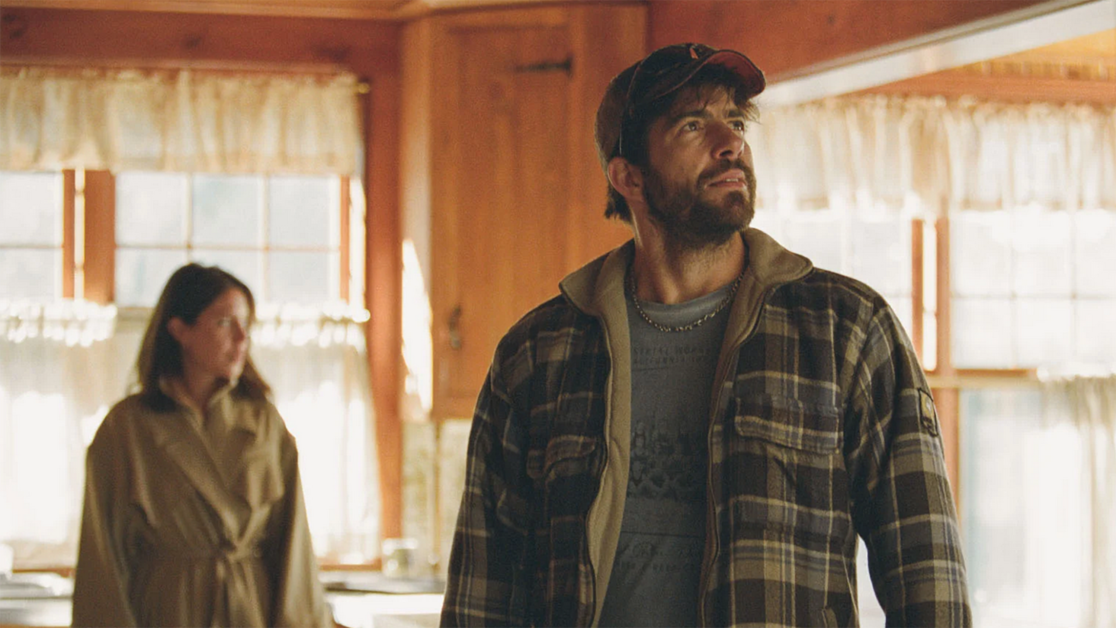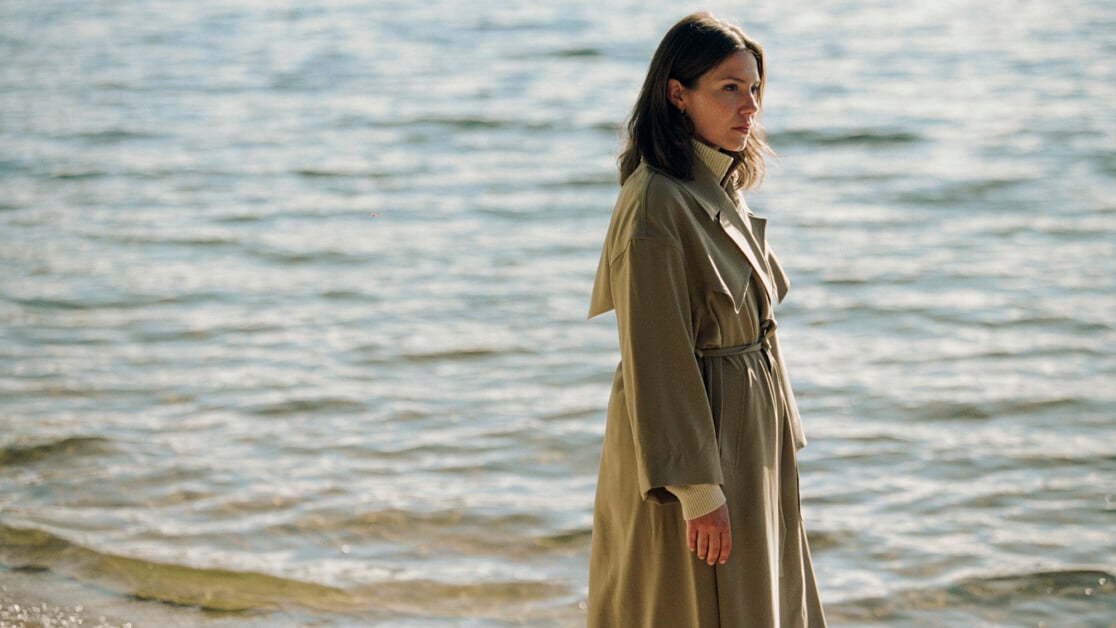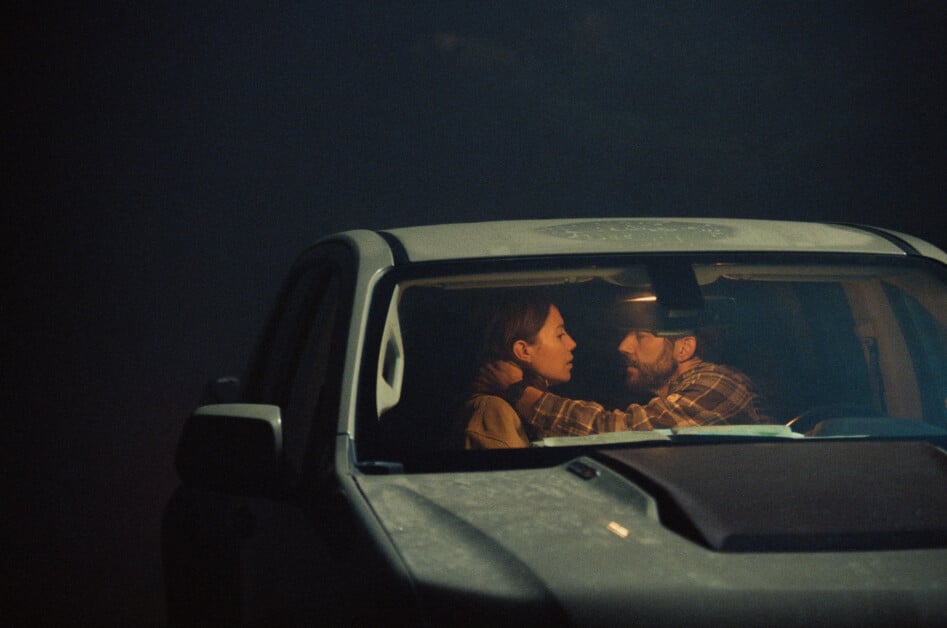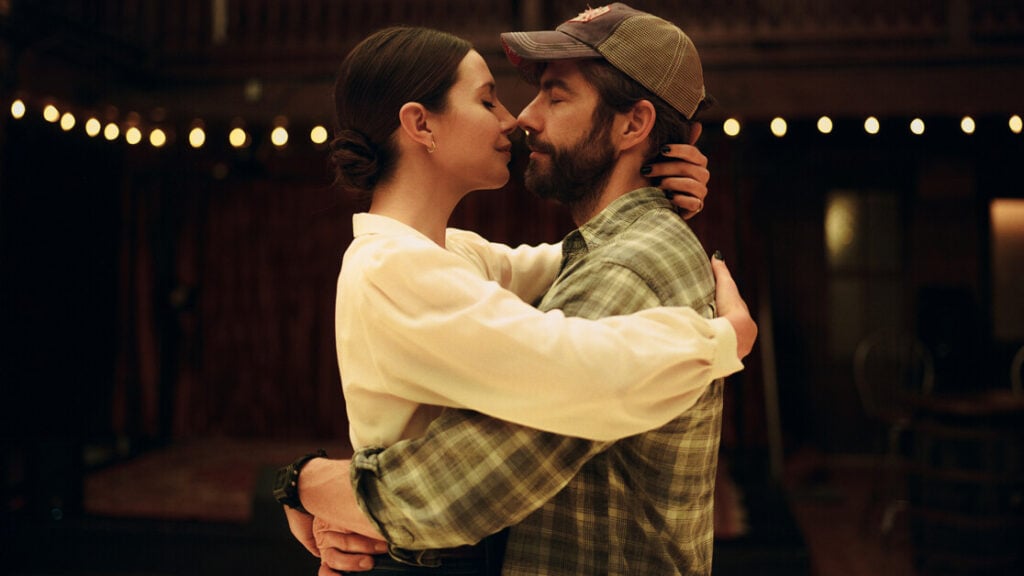Romance in movies can be stale, like bread left overnight. In this current age, there needs to be more appetite for experimentation in the genre. Instead, preferences range from relying on the tried and true to the outright cliché. Fortunately, in The Nature of Love, the film finds a clever way to examine the formula but does more than reshuffle the material. There is an outright examination of love as a messy, kinetic, and deeply passionate event. This romance story plays fast and loose with the comedy, imbuing a sense of drama and even out-of-the-box thinking regarding the cinematography. In addition to being anchored by two leads with simmering chemistry, The Nature of Love is a poignant story going beyond the usual story beats of a girl meets boy into a study on values, love, and life.

At the film’s start, we meet Sophia (Magalie Lépine Blondeau), a mid-40s woman living a conventional life. Though married, she and her husband, Xavier (Francis-William Rhéaume), share separate bedrooms. Hailing from a wealthy upbringing, Sophia stimulates herself with liked-mind friends with whom she engages in long-form intellectual discussions. However, from the start, Sophia has a longing and yearning look in her eyes. The conversations grow stale, and the stability of her life becomes pedestrian. Everything changes instantly when she begins a passionate affair with a contractor, Sylvain (Pierre-Yves Cardinal). As their romance unfolds, Sophia begins questioning her own life choices and values.
The Sophia we meet at the start is far from sheltered, but she presents as a mild-mannered philosophy professor. She is someone who poses moral questions rather than answers them for herself. All this changes when, in the process of renovating her summer cottage, she begins an affair with Sylvain. Unlike Sophia, he comes from a working-class background, which immediately establishes a social and moral quandary. What starts as a sexual affair begins to blossom as Sophia throws caution to the wind. In turn, she reconciles her preconceived notions of people outside her social station.

The comedy in this film partly arises from the characters’ reactions to their circumstances. It is much more of a dry wit that is at play that compliments the fact that our main lead is a philosophy professor. The pairing with an unpolished but sensitive contractor provides clever interactions, mainly as these two characters, Sophia and Slyvian, wrestle with the idea of their relationship seeming impractical.
Here is where Blondeau crafts a complicated yet endearing woman who is forthright and passionate. She reconciles with the shame of her actions, but the film never ends up chastising or even endorsing Sophia’s choices. This film takes a page from a philosophy lecture. It presents the information, in this case, love, as messy, complicated, and impulsive. The very nature of love is far from a fairy tale construct. We all strive for poetry, and yet much of it is prose. This is a humanistic story, where the emotions are real even when the comedy is concerned, and the actions have consequences.
One particular scene captures the essence of Sophia’s character. As she and Sylvain make love, she rambles with philosophical musings about her friends’ lack of fidelity to their respective marriages. In a way, she gives herself added permission to continue the affair. These moments might come off as wooden or slapstick in the wrong hands. Here, Blondeau portrays Sophia with such conviction that the audience buys her dialogue hook, line, and sinker.

Audiences may differ in the morally gray actions of its characters. Still, there is no denying that the film is held together in a beautiful thread by the chemistry of Blondeau and Cardinal. There are multiple scenes in which their pairing is both arresting and real. A sexual rendezvous in a hallway in a more conventional rom-com would be tailored right down to the musical overtones. The Nature of Love goes for in-the-moment reactions, showing that love is messy, figuratively and literally.
An added point of intrigue in this film is the choice of camera work. Many close-ups and even zoom techniques are uncommon in these types of films. While jolting at first, the camera almost acts as a third party in this story, giving a unique perspective and a sense of impartiality, which further helps paint the complicated picture writer and director Monia Chokri is attempting to craft.
The Nature of Love is bolder than most romantic offerings, partly because the movie is as much a cerebral as a traditional narrative. The film invites the audience not to pass judgment on the characters but to concede to love’s complicated and wily nature. In a story teeming with chemistry and gut-punching emotion, the film offers plenty of straightforward tropes found in the genre. Still, it is the unconventional subtext and cinematic craftsmanship that make this a near-perfect outing.
The Nature of Love is currently playing in New York and Los Angeles courtesy of Music Box Films. The film will continue its national expansion in the coming weeks.
The Nature of Love is bolder than most romantic offerings, partly because the movie is as much a cerebral as a traditional narrative. The film invites the audience not to pass judgment on the characters but to concede to love's complicated and wily nature. In a story teeming with chemistry and gut-punching emotion, the film offers plenty of straightforward tropes found in the genre. Still, it is the unconventional subtext and cinematic craftsmanship that make this a near-perfect outing.
-
GVN Rating 8
-
User Ratings (0 Votes)
0

Writing & podcasting, for the love of movies.
His Letterboxd Favorites: The Dark Knight, Halloween, Jaws & A Christmas Story.






